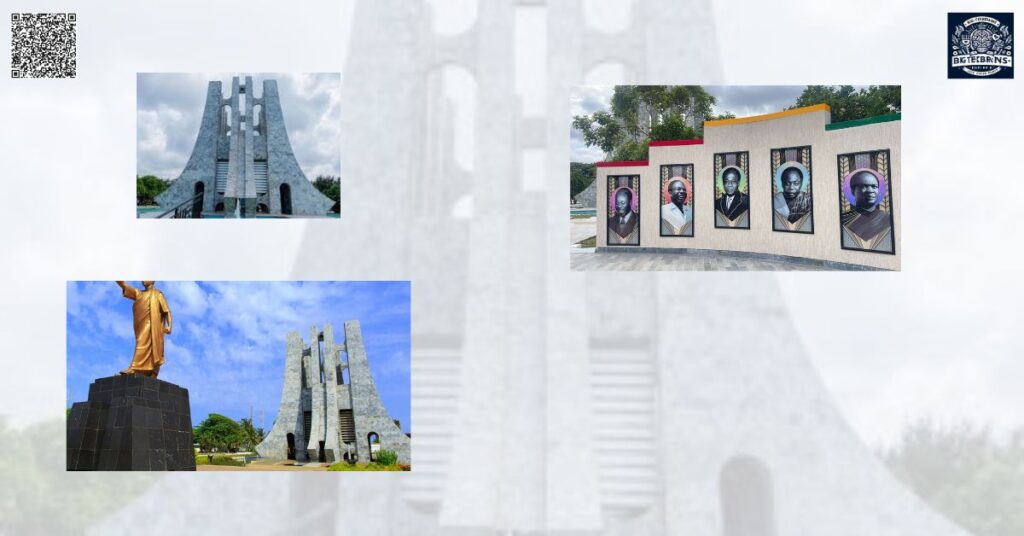Excerpt
The Kwame Nkrumah Memorial Park, located in downtown Accra, Ghana, stands as a testament to the nation’s journey to independence and honors its first President, Dr. Kwame Nkrumah. Established in 1992 on the site of the former British colonial polo grounds, the park not only serves as the final resting place for Nkrumah and his wife, Fathia, but also as a beacon of Ghana’s rich history and cultural heritage.
Historical Background
Dr. Kwame Nkrumah was a pivotal figure in Africa’s fight against colonialism. Born in 1909 in Nkroful, Gold Coast (now Ghana), he pursued higher education abroad before returning to lead the country to independence from British rule in 1957. As Ghana’s first Prime Minister and later President, Nkrumah championed Pan-Africanism and played a significant role in the formation of the Organization of African Unity (OAU) in 1963.
Constitutional Role and Mandate
The Kwame Nkrumah Memorial Park operates under the auspices of Ghana’s Ministry of Tourism, Arts and Culture. Its primary responsibilities include acquiring, conserving, and managing artifacts related to Dr. Nkrumah, as well as promoting his ideals and the broader principles of Pan-Africanism.
Organizational Structure and Leadership
As an agency of the Ministry of Tourism, Arts and Culture, the park is overseen by a management team appointed by the ministry. This team is responsible for the day-to-day operations, including curatorial duties, maintenance of the grounds, and educational outreach.
Mode of Appointment and Recruitment
Appointments to the management team and other positions within the park are conducted in accordance with Ghana’s public service recruitment policies. This ensures that qualified individuals are selected to uphold the park’s mission and objectives.
Collaborative Offices and Units
The park collaborates with various governmental and non-governmental organizations to fulfill its mandate. Key partnerships include the Ministry of Tourism, Arts and Culture, educational institutions, and cultural organizations dedicated to preserving Ghana’s history and promoting Pan-African ideals.
Constitutional Reforms
While the park itself is not directly involved in constitutional reforms, it serves as a symbol of Ghana’s political evolution. The site commemorates the location where Nkrumah declared the nation’s independence, marking a significant constitutional transition from colonial rule to self-governance.
Achievements
Since its inauguration, the Kwame Nkrumah Memorial Park has become one of Ghana’s most visited sites, attracting approximately 98,000 visitors annually. The park offers a comprehensive museum showcasing Nkrumah’s personal effects, photographs, and significant artifacts, providing insight into his life and legacy.
Additional Information
The park’s design is rich in symbolism. The mausoleum, clad in Italian marble with a black star at its apex, represents unity. Surrounded by water, a symbol of life, the structure’s inverted sword shape signifies peace in Akan culture.
Visitors can also view a bronze statue of Nkrumah, which stands as a focal point within the park, embodying his enduring legacy and leadership.
References
- https://en.wikipedia.org/wiki/Kwame_Nkrumah_Mausoleum
- https://knmp.gov.gh/kwame-nkrumah/
- https://knmp.gov.gh/about-us/
- https://africa.dailynewsegypt.com/kwame-nkrumah-mausoleum-ghana/
- https://momaa.org/the-kwame-nkrumah-memorial-park/
- https://artsandculture.google.com/story/kwame-nkrumah-memorial-park-hacsa-foundation/QgXRpMwNhhcHsQ?hl=en
- https://ghanaeducation.org/kwame-nkrumah-memorial-park-honouring-ghanas-founding-father-new-pictures-of-the-renovated-kwame-nkrumah-memorial-park/
- https://jetsanza.com/a-brief-history-kwame-nkrumah-mausoleum-and-memorial-park/

